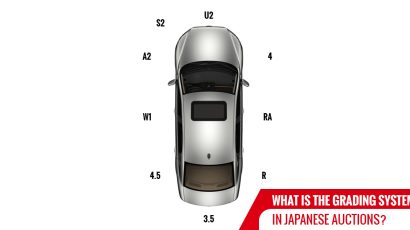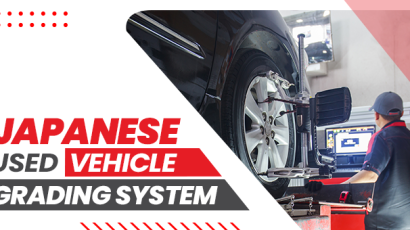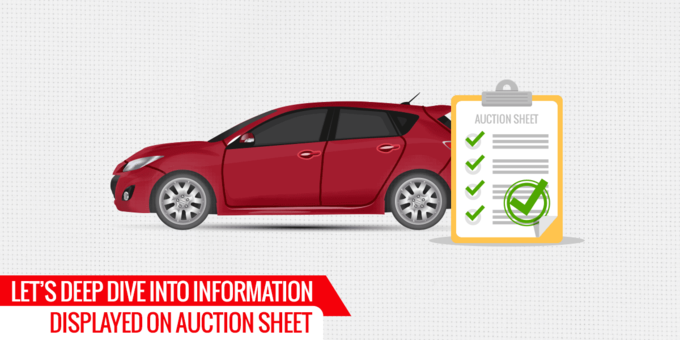
Are you one of those having a hard time deciphering the Auction sheet for your car? If yes, then read on the full story to have a better picture of what the Auction sheet holds for you?
When it comes to car shopping, there is an endless stream of choices but they are stymied to budget constraints, customer preferences and varying needs for mobility. Car shopping becomes even more challenging when you are going to opt for a used car. Making the job done blindfolded will leave you in great remorse. Therefore, besides a proper understanding of the automobiles to see the clear picture of their condition, it is also important for you to gain an insight into the informational tidbits mentioned on the auction sheet.
The Auction Sheet Explained
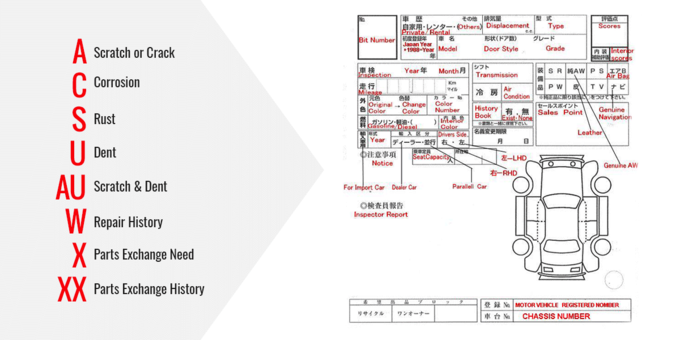
The Auction sheet is more like a biological autopsy or an x-ray report that gives all the details about the condition of the car. The auction sheet consists of different grades demonstrating the interior and exterior and several alphanumeric symbols showcasing the shape, condition, dimples, dents, repair marks, paintwork, distortion, rust, and corrosion.
More precisely, the auction sheet is intended to provide basic information about the vehicle which includes:
-
Production Month and the year
Auction sheet lets the prospective buyers calculate the car age by displaying the month as well as the year of production.
-
Lot Number
Japan is a hub for used cars; hence these vehicles are grouped into different lots. The lot number assist in the identification and the delivery of the vehicle at the desired location.
-
Car Type And Body Type
The body configuration and vehicle type another essential aspect mentioned clearly on the auction sheet. For example, if the vehicle is 4-door, it will be a written as 4D.
-
Interior and Exterior Parts
The auto inspectors as experienced professionals and they grade the interior and exterior parts of a car to give prospective buyers to have an idea of the shape, condition, and quality of the vehicle. The auction sheet holds an exterior rating on the left hand and the interior rating on the right-hand section of the box.
-
Chassis Code and Chassis number
The Japanese cars have their chassis cod. The chassis number helps the buyers to verify and authenticate the car purchased and car shipped to his port.
-
Auction Grades
The Auction Grades is used to demonstrate the overall condition of a car. For Example, If the grade is “S” it means brand new car and if the grade is “R” it means repaired. Moreover, the “XX” stands for damaged vehicles. The lower the figure is the lower the quality and condition. Read another blog “to have a complete understanding of the grading system on the Auction sheet”.
-
Comments
This is the inspector’s part where he writes down comments in Japanese characters. You can use Google translator or the language translating apps to translate and understand these comments.
-
Additional Features
The auction sheet also displays the additional features integrated inside the car, for example, air conditioning and the transmission type. The “ACC” for instance sands for air conditioning or climate control and “FAT” stands for a floor-shift automatic transmission.
-
Additional Accessories
Cars are rich in terms of features and functionalities. There are multiple accessories integrated inside car that are mentioned as their initials in the auction sheet. “PS” means power steering and the “PW” stands for power windows.
-
Diagram
Above all else, the car’s diagram on the auction sheet provides a clear view of the overall condition. Alphabetic characters demonstrate defects and their severity that gives clear picture of dents, scratches or flaws on the car body.
Important To Remember
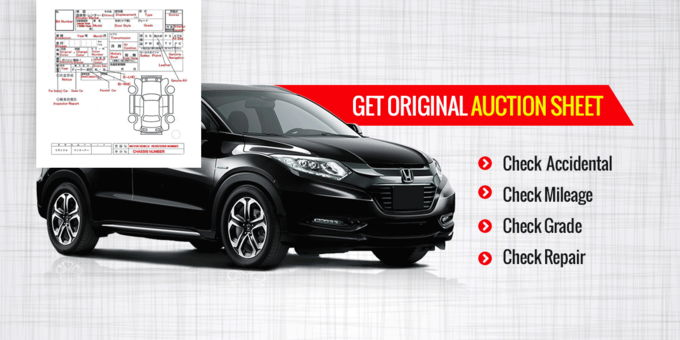
In this digital era where everything is going online, to ace the game and make a rational purchase, it is essential to brush up your understanding of the Auction sheet. Multiple used car exporters are selling the accidental or repaired used cars with fake auction sheets. Once you get a sound knowledge to dissect the information on the autopsy report of your car, one more thing you need to keep in mind is the verification of the Auction sheet.
Bottom line

When buying a used car from an auction house, it is always recommended as a golden rule to have a proper technical and mechanical checkup. What if you are buying a pre-used car overseas and unable to have a look over the physical condition? This is where the role of the auction sheet comes into play. Upholding the sanctity of my profession I tried my best to give you a complete understanding of the auctions sheet and I can assure you that the proper know how of this single piece of paper will sound like a blessing for you.






